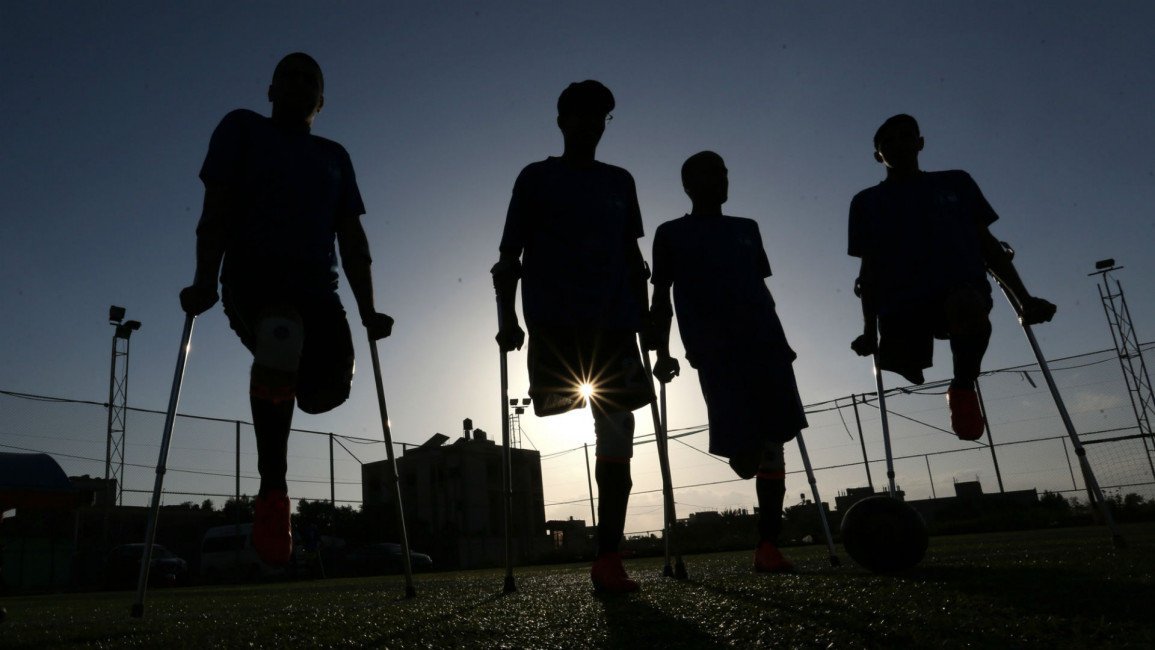Qatar Hospital opens two units to treat diabetic foot and chronic pain in Gaza
The Qatar-funded Sheikh Hamad Bin Khalifa Al-Thani Hospital for Rehabilitation and Prosthetics in Gaza on Wednesday opened two specialised units, the first of their kind in the territory, to treat diabetic foot and chronic pain.
An opening ceremony occurred in the presence of the Qatari delegation headed by Khaled Abdul Hady, the hospital's Vice-Chairman of the Board of Directors.
"Hospital always seeks to keep pace with every recent development in the health sector and every new development in modern medical sciences to treat patients, alleviate their suffering and provide them with distinguished health services by international quality standards," Abdul Hady said to The New Arab.
"The two units will constitute a qualitative leap in the health services in Gaza, which lacks the capabilities and equipment required in this field due to the blockade," he added.
"Patients with diabetic foot and chronic pain mostly are forced to travel abroad to receive the necessary treatment (…) some of them (patients) may resort to amputating their legs due to the lack of treatment in the impoverished area," Abdul Hady said.
"We decided to expand the provision of health services, especially treating patients with diabetic foot and chronic diseases, due to the lack of specialised health centres that treat this large segment of diabetics and patients with chronic diseases in an advanced and sophisticated manner," he noted.
The charity hospital was launched in 2019, following an agreement between the Gaza-ruler Hamas and Israel to end the Great Return Marches, to provide treatment to the people with disabilities in the coastal enclave.
According to statistics issued by the Gaza-based Rehabilitation and Social Training Association, a Palestinian civil organisation concerned with people with disabilities, there are around 48,000 people estimated to have disabilities involving their extremities currently living in the Gaza Strip, representing about 2.4 per cent of the total population.



